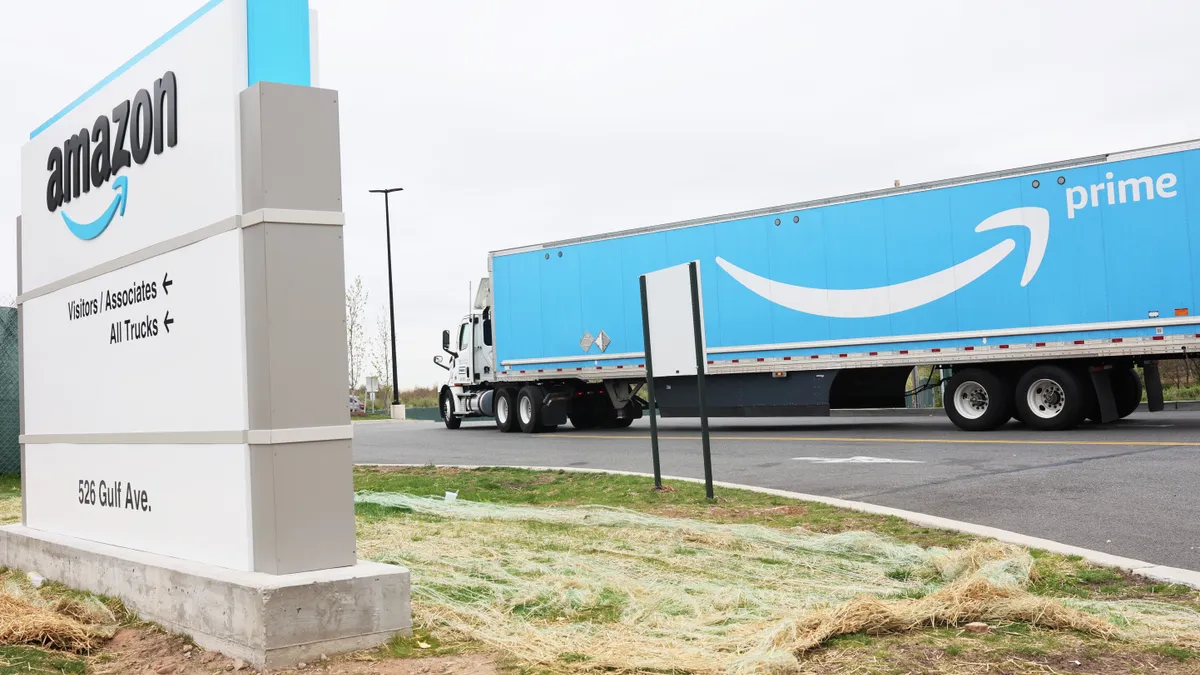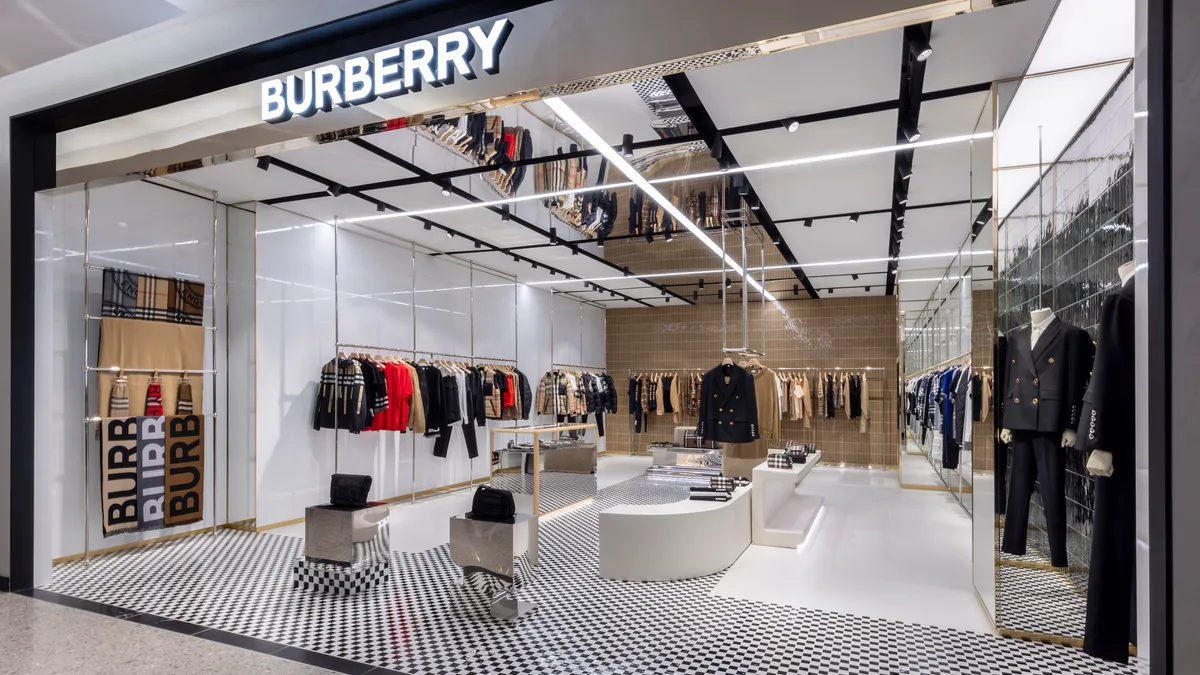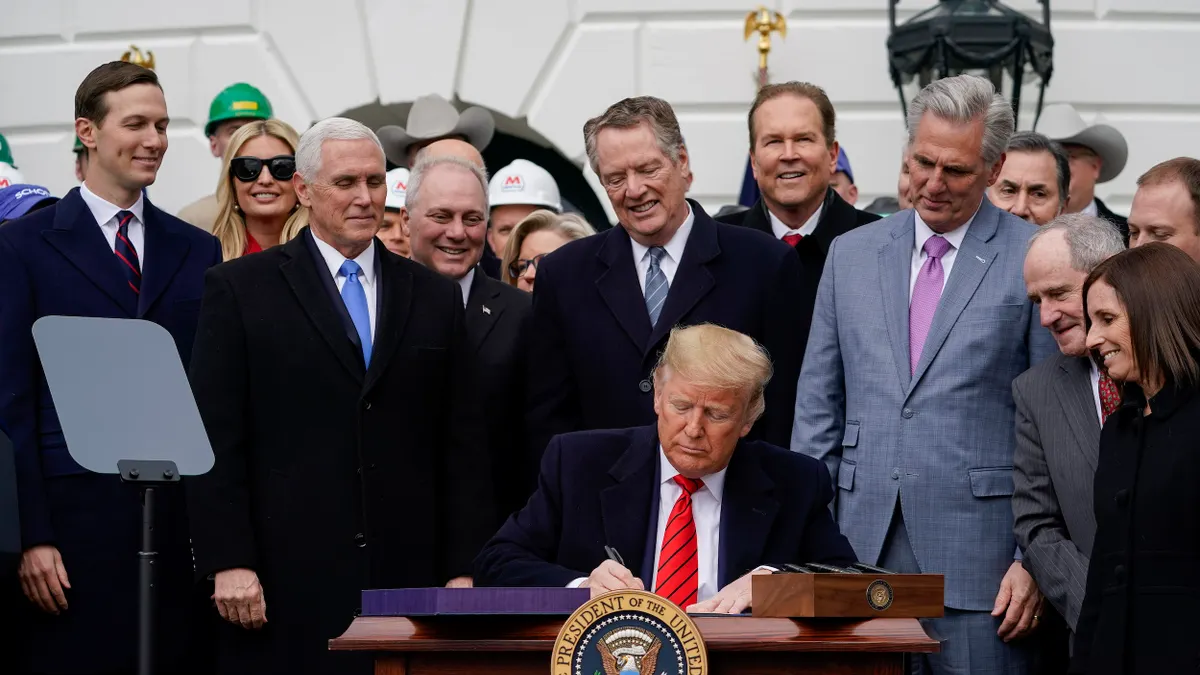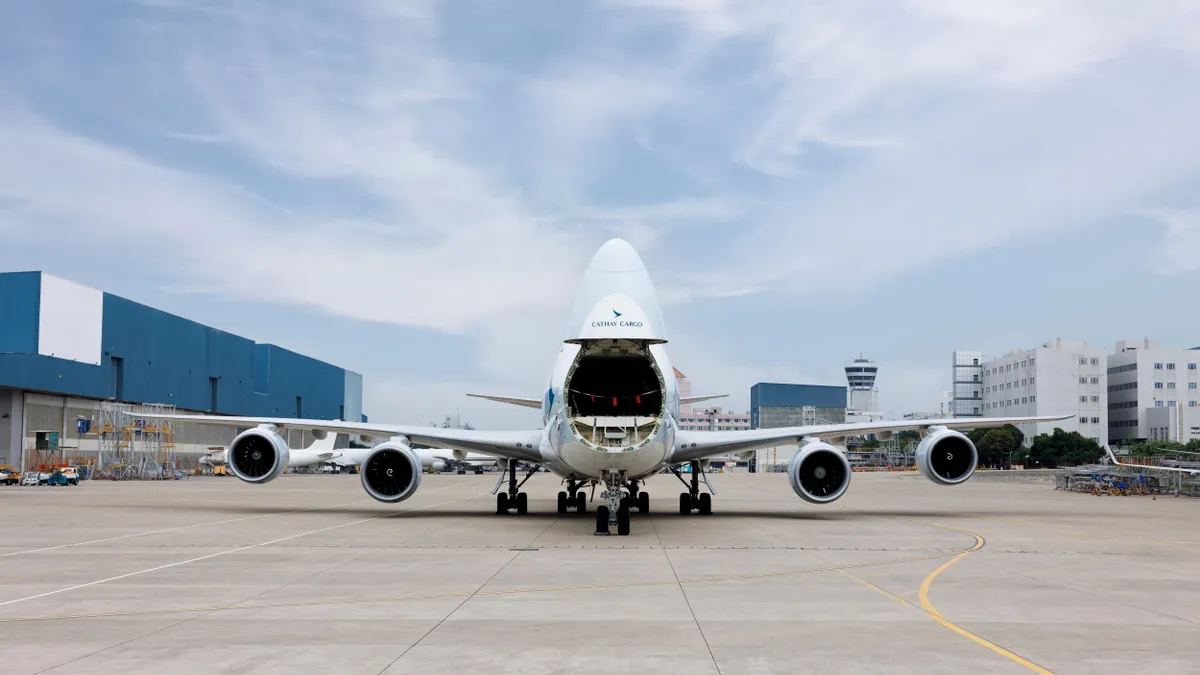Amazon's fulfillment services are a major piece in the antitrust against the company, with the suit brought forth by the Federal Trade Commission and 17 state attorneys general alleging anticompetitive practices are hurting sellers and consumers alike.
The complaint, filed last week in the U.S. District Court for the Western District of Washington, says sellers have weathered rising fulfillment fees and are cornered into using Amazon's fulfillment services, squeezing out alternative providers.
The company fundamentally disagrees with the FTC's allegations that "are in many cases wrong or misleading" and will contest the lawsuit, said David Zapolsky, Amazon's SVP of global public policy and general counsel, in a statement on the company's website.
Here are four fulfillment-related allegations from the FTC's lawsuit against Amazon.
1. Higher fulfillment fees hurt sellers, who then raise prices
Amazon has consistently hiked the prices it charges sellers over time, according to the complaint.
Sellers face four primary fees when using Amazon's services: a charge for using its fulfillment and delivery services; a selling fee; a commission based on an item's price; and a charge for advertising services. Fulfillment fees in particular have been a growing pain point for sellers, as they increased by approximately 30% from 2020 to 2022, according to the complaint.
"Amazon has hiked so steeply the fees it charges sellers that it now reportedly takes close to half of every dollar from the typical seller that uses Amazon's fulfillment service," the FTC said in its complaint.
One way sellers respond to Amazon's fee increases is by raising prices for goods they sell outside Amazon’s platform, inflating prices for consumers shopping on other online channels, the complaint says.
Zapolsky, the Amazon executive, said Fulfillment by Amazon, or FBA, is a competitively priced service, with fulfillment fees 30% less expensive on average than standard-shipping methods from other logistics providers.
2. Sellers are cornered into using Fulfillment by Amazon
Amazon's Prime subscription gives sellers an enormous platform and reach — but the company's practices to limit what products are eligible for the coveted Prime badge penalize sellers who opt out, the complaint said.
Amazon ties Prime eligibility for sellers' products to the use of the company's fulfillment service, FBA. But the complaint said many sellers would rather use a different fulfillment method that allows them to "multihome" their products, or offer goods across multiple sales channels in a less costly manner.
Sellers that forego this eligibility effectively see their products "disappear from Amazon's storefront" with limited access to Amazon's substantial base of shoppers, according to the complaint.
"Without Amazon’s coercion, sellers could more easily offer their products to shoppers via multiple outlets, including other online superstores and marketplaces," the complaint said. "They could also use a single fulfillment provider of their choice and pass associated savings on to their customers across all online sales channels, including Amazon."
Zapolsky said FBA is an optional service and the company doesn't force sellers to use it. He added that non-FBA sellers can offer products with the Prime badge as long as they meet customer expectations of fast, reliable delivery.
3. Amazon's conduct hurts independent fulfillment providers
Today, FBA is by far the largest online retail fulfillment services provider, according to the complaint. By making this "effectively the only fulfillment option available for Prime-eligible orders," Amazon has limited the growth of competitors and fueled its own network's expansion.
Without that constraint, independent fulfillment providers could compete with Amazon for Prime volume and gain enough scale to lower their costs to sellers.
"That, in turn, would make independent providers even more attractive to sellers seeking a single, universal provider," the complaint said. "All of this would make it easier for sellers to offer items across a variety of outlets, fostering competition and reducing sellers' dependence on Amazon."
FBA is limited to orders placed on the company's marketplace, but sellers can pay an additional fee for a separate Amazon service to fulfill off-Amazon orders, the complaint noted.
The complaint didn't specify which service that is, but Zapolsky said Amazon's recently launched "Buy with Prime" offering allows sellers to offer Prime shipping on their own websites. Amazon is also rolling out a Multi-Channel Distribution service, part of Supply Chain by Amazon, that moves products in bulk to any seller channel.
4. Seller Fulfilled Prime hasn't solved fulfillment issues
In 2015, Amazon launched Seller Fulfilled Prime, a program allowing certain sellers to fulfill Prime-eligible orders without using FBA. The complaint said Seller Fulfilled Prime, or SFP, was popular among sellers and noted that Amazon founder Jeff Bezos once described the program "as a win-win for sellers and shoppers."
But Amazon began blocking new enrollment into the program in 2019, and the company communicated to sellers already using it that they should be fulfilling the orders themselves rather than using independent providers, according to the complaint.
Some sellers who still participate in SFP are concerned they are held to stricter delivery benchmarks than FBA, the complaint said. It added that Amazon's search filter "suppresses Prime offers fulfilled through SFP."
Amazon recently told sellers it plans to reopen SFP enrollment later this year, with requirements that include shipping more than 99% of orders on time and having nationwide delivery coverage for standard-size products.
"Amazon’s communications about upcoming changes to the SFP program continue to indicate that sellers would need to fulfill Prime orders themselves, without using independent fulfillment providers," the complaint said. "As of this filing, SFP enrollment remains closed."
Zapolsky didn’t address specific Seller Fulfilled Prime allegations in his statement.























